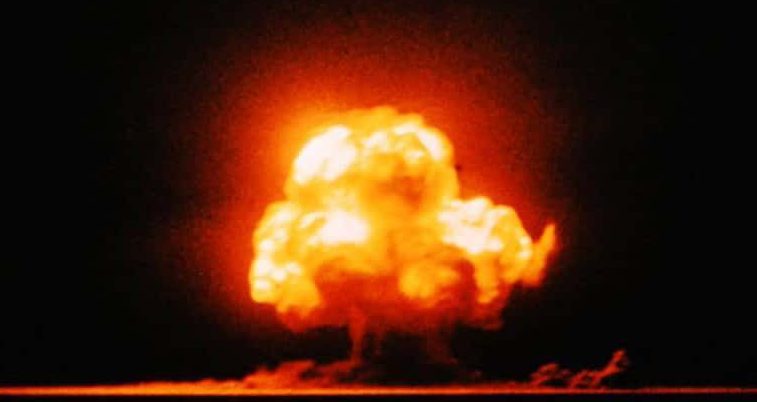Russia has reportedly patented a simulator that mimics the conditions ground soldiers would encounter in the event of a nuclear explosion. The simulator, developed at the General A. V. Khrulev Military Academy of Logistics, recreates visual challenges to include flash, mushroom cloud dust and other impact effects.
According to TASS, the simulator is designed to replace the now obsolete IU-59. Russian forces intend to use the simulator for training exercises that would prepare troops for conditions they may encounter through the use of nuclear and chemical warfare devices. Through this training, ground reconnaissance forces would be able to determine the epicenter and fallout parameters of a nuclear explosion.
Earlier in January, Russian Foreign Minister Sergey Lavrov rejected a bid by the U.S. to resume negotiations regarding nuclear arms control. According to The Associated Press, Lavrov called the proposal “unacceptable,” further stating that the West’s support of Ukraine was a primary concern hindering talks.
Lavrov stated his opinion that perceived encouragement to Ukraine to increase strikes on Russian territory was fueling global security risks. According to a translation by Reuters, Lavrov did not rule out the possibility of future talks.
“We do not see the slightest interest on the part of either the United States or NATO to settle the Ukrainian conflict and listen to Russia’s concerns,” Lavrov said, though he did not state that Moscow was closing the door on the issue. “We do not reject this idea for the future, but we precondition this possibility on the abandonment by the West of its policy of undermining and not respecting Russia’s interests.”
Talks between Russia and the U.S. regarding nuclear weapons are an emerging issue as the New Start Treaty, signed in 2011, nears its expiration date of February 2026. The treaty marked an agreement establishing limits on the number and type of nuclear weapons to be developed and held by each country, as well as transparency between the countries.
According to Reuters, Pranay Vaddi, senior director for arms control at the White House National Security Council, believes future negations are possible.
“We have to take Russia at its word … They’re refusing to engage bilaterally on these issues,” Vaddi said. “It casts some doubt on Russia’s willingness to entertain a conversation about a New START follow-on or returning to New START compliance. I think that they will want to come back to the table at some point, and ideally before expiration, but Russia could also be unpredictable.”

